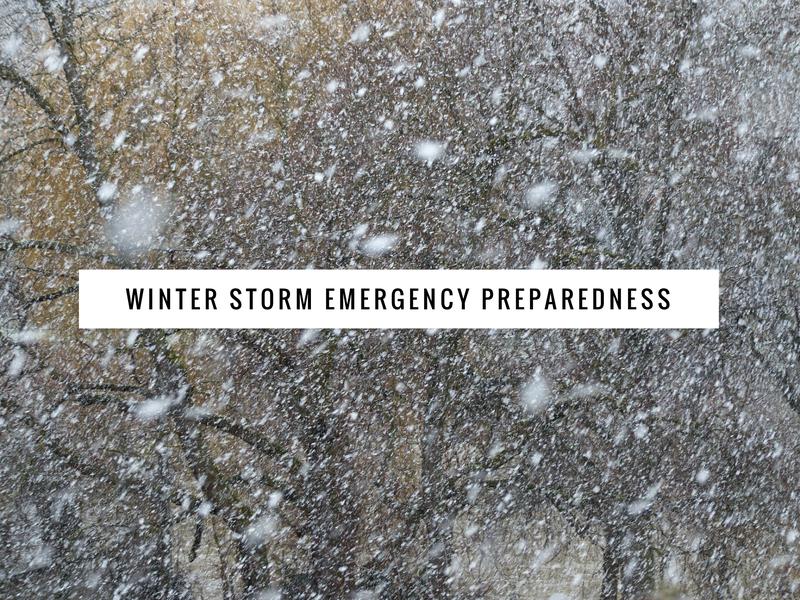Although infrequent, winter weather can be a real danger, especially to the elderly or disabled. The best way to weather the storm is to make sure you’re adequately prepared. Here are a few tips for maximizing your winter storm preparedness.
Stay Informed
The key to winter storm preparedness is staying informed about the weather. Knowing a winter storm is approaching is important, as it allows you to adequately prepare before it arrives. Be sure to check weather forecasts regularly in the winter and keep a battery-powered radio on hand, as it will allow you to find out what’s happening should the power go out in a storm.
Supplies to Keep on Hand
If a winter storm does hit, you’ll want to avoid traveling as much as possible. Keep your home stocked with emergency supplies so that you can wait out the storm as necessary. Although you should try to minimize driving in a winter storm, stock your car as well so you’re prepared if you have to go somewhere.
- Water: If the pipes freeze, you won’t have access to water. Before the storm hits, make sure you reserve about three gallons per person.
- Food: When a storm is looming, it’s a good idea to go to the grocery store and make sure the pantry is well stocked. Be sure to have some food on hand that doesn’t have to be cooked, just in case the power goes out.
- Radio: A radio can be an important link to the outside world. A battery-operated radio and extra batteries will keep you informed, even if the power goes out.
- Ice melt and sand: If you have to go outside, make sure you can get around safely by keeping something to melt the ice on walkways and sand to provide traction.
- Medication: Make sure you have enough medication on hand to outlast the storm.
- Cell phone and charging equipment: Keep a cell phone handy, even if you don’t normally use one. Purchase an external battery for charging a cell phone and check to be sure both are fully charged before a storm.
- Carbon monoxide detector: Most homes now have carbon monoxide detectors in central areas and near bedrooms. Make sure your home has at least one and check the batteries at least once a year.
When a Storm Hits
Once in a while you may get to put your winter storm preparedness to the test. When a storm hits, staying safe is a priority. Here are a few tips.
- Stay inside and minimize travel. During a storm roads can be treacherous, so staying put can help keep you safe. If you do have to go outside, make sure you’re dressed appropriately for the weather, using multiple loose-fitting layers to help you stay warm.
- Beware of overexertion. Before heading outside to shovel, remember to take it easy. Overexertion during extreme weather can bring on a heart attack or increase the risk of frostbite or hypothermia.
- Protect against frozen pipes. Keeping the house the same temperature around the clock will help protect pipes from freezing overnight. If the power goes out, turn faucets on a trickle to keep the water moving and help prevent the pipes from freezing.
- Stay in touch. Communicate with relatives and friends so they know you’re safe and stay in touch throughout the storm.
Occasionally Mother Nature likes to throw us a curve ball. Don’t let her catch you unawares! With a little preparation, you can stay safe and warm during any weather she throws your way.



